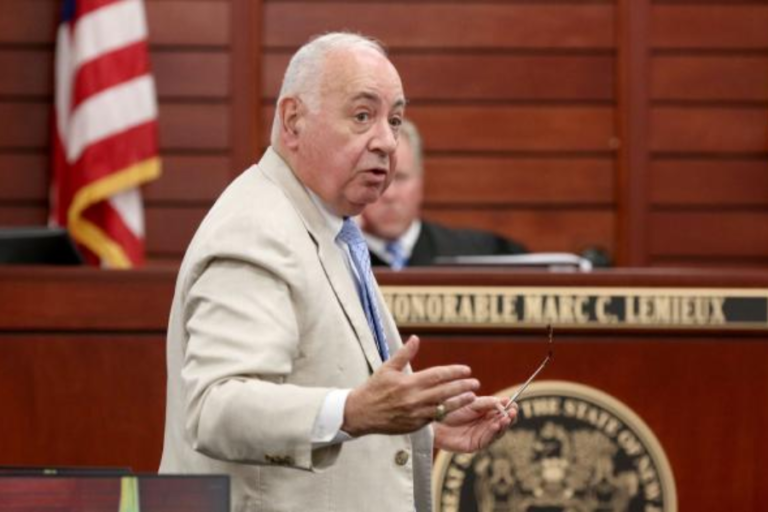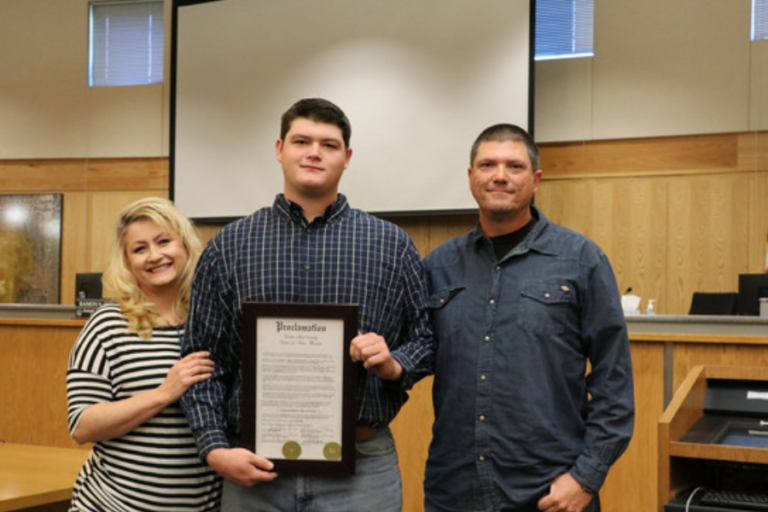Kqed This Week David Spark Carla Marinucci: Discuss California’s Future
In the ever-evolving landscape of California, the news cycle is constantly shifting, often bringing forward pressing issues, diverse viewpoints, and important discussions. Among the platforms providing insightful analysis is KQED, a trusted news source in Northern California. Recently, on Kqed This Week David Spark Carla Marinucci, two prominent figures, David Spark and Carla Marinucci, came together to discuss a range of topics, shedding light on both local and statewide matters that affect residents and beyond.
This blog post takes a closer look at their discussions, providing a deep dive into the core topics covered during the segment, alongside some critical facts that help shape the broader conversation. Whether you’re a California resident or someone interested in the region’s politics and culture, this analysis offers valuable insights that are both relevant and engaging.
Who Are David Spark and Carla Marinucci?
Before delving into the specifics of KQED This Week, it’s essential to understand the backgrounds of the hosts leading the discussion. David Spark and Carla Marinucci are both highly respected journalists with a wealth of experience in political reporting, media analysis, and public affairs.
David Spark is a seasoned journalist, tech expert, and founder of Spark Media Solutions. Known for his work as a journalist, he brings a unique angle to discussions on technology, communication, and how they intersect with broader political narratives.
Carla Marinucci is a political reporter who has long been a staple in California journalism. She has worked for major outlets like Politico and San Francisco Chronicle, focusing on political trends, policy discussions, and the pulse of California’s political sphere. Her insights on legislative matters and political dynamics are invaluable, especially when it comes to understanding the intricacies of state and national elections.
Together, Spark and Marinucci represent an ideal duo to offer engaging, insightful, and fact-driven coverage of current issues impacting California.
Key Topics Discussed on KQED This Week
The recent episode of KQED This Week, featuring David Spark and Carla Marinucci, revolved around a few major topics that continue to dominate the political and social conversation in California. Here are the key issues they touched upon:
1. California’s Housing Crisis
One of the most pressing issues in California today is the ongoing housing crisis. As the state experiences rapid population growth, housing demand has increased significantly, but the supply of affordable housing has not kept pace.
Spark and Marinucci discussed how policymakers have tried and failed to address the crisis, focusing on the challenges of building new housing projects in both urban and suburban areas. This includes zoning laws, the influence of local governments, and the high costs of construction.
According to a 2024 report from the California Department of Housing and Community Development (HCD), California needs an additional 3.5 million housing units by 2025 to meet demand, yet the state has struggled to keep up. The conversation delved into the various proposed solutions, such as affordable housing initiatives and incentives for developers, while also considering the role of environmental regulations and NIMBY (Not In My Backyard) opposition.
Carla Marinucci, with her extensive political background, pointed out that local governments often resist state-level mandates for housing construction, citing concerns about overcrowding, local resources, and infrastructure strain. This creates a tension between the need for housing and the desire for local control, something that policymakers are still grappling with.
2. California’s Environmental Policy and Climate Change
Another crucial issue discussed on KQED This Week was California’s response to climate change and its aggressive environmental policies. As one of the most progressive states in the U.S. when it comes to environmental regulations, California has implemented stringent emission standards, renewable energy mandates, and other measures aimed at reducing its carbon footprint.
Spark and Marinucci examined how the state is leading the charge in clean energy transitions, including Governor Gavin Newsom’s climate agenda. In 2023, Newsom announced a new initiative to push for a zero-emission vehicle future by 2035. This means all new cars sold in California must be electric by that year.
While there’s broad support for these climate policies, the hosts discussed some of the challenges California faces, including the rising costs of clean energy infrastructure, the economic impacts on workers, and the ever-present issue of balancing environmental priorities with job creation. The conversation highlighted the complexity of implementing progressive policies in a state that remains highly diverse, both economically and geographically.
Experts in the field agree that while California’s ambitious goals are commendable, they will require significant investment and careful implementation to be fully successful. This was a point of discussion, with Marinucci sharing insights into how environmental advocacy groups and business leaders have both praised and criticized the state’s plans.
3. The Future of Tech in Silicon Valley
No conversation about California is complete without touching on Silicon Valley and the influence of the tech industry. Spark, who has deep knowledge of tech, discussed how the landscape is shifting as big tech companies navigate challenges such as regulatory scrutiny, economic downturns, and rising concerns about privacy and data security.
In 2024, major companies like Google, Apple, and Facebook have been facing increased pressure from both state and federal lawmakers to address privacy concerns. Marinucci pointed out that with California’s recent privacy law, the California Consumer Privacy Act (CCPA), the state is leading the nation in setting stricter standards for how companies handle user data.
The hosts discussed the growing influence of AI and automation technologies in the tech world and how these advancements could affect jobs in California’s tech sector. With automation threatening to replace certain types of jobs, there are increasing concerns about the future of work in Silicon Valley and across the state.
At the same time, California has long been seen as a global hub for innovation, and both Spark and Marinucci emphasized that Silicon Valley’s ability to attract talent, foster start-ups, and drive technological breakthroughs will continue to shape the state’s economic future for years to come.
4. The Impact of National Politics on California
Lastly, the conversation shifted to how national politics and issues are influencing California. As a deeply liberal state, California’s political dynamics often stand in contrast to the policies coming out of Washington D.C. The hosts analyzed how Governor Gavin Newsom and state lawmakers have responded to federal policy shifts, especially under the Biden administration.
Marinucci pointed out that California has often led the way on social issues, including abortion rights, healthcare reform, and immigration policy. With the Supreme Court’s 2022 decision to overturn Roe v. Wade, California became a refuge for those seeking abortion services, further cementing its role as a progressive leader in the country.
David Spark brought up the tension between state and federal authorities, particularly on issues like immigration and climate change. California’s sanctuary policies and environmental laws have sometimes led to clashes with the federal government, a dynamic that continues to play out as the state navigates its position in the broader national context.
The Role of KQED in California’s Media Landscape
KQED This Week serves as an essential platform for Californians to stay informed on political developments, social issues, and the latest in economic trends. The segment’s focus on balanced discussions, factual data, and diverse expert opinions makes it a valuable resource for anyone interested in the pulse of California.
With its commitment to delivering high-quality, unbiased news, KQED’s efforts in providing a space for experts like David Spark and Carla Marinucci to share their perspectives are pivotal in shaping informed public discourse. The show’s combination of seasoned journalism, political analysis, and expert insights positions it as a trusted source of information in the Golden State.
Conclusion
The latest episode of KQED This Week featuring David Spark and Carla Marinucci offered an in-depth look into some of the most pressing issues shaping California’s future. From the ongoing housing crisis to environmental policies, the evolving tech landscape, and the state’s role in national politics, the discussion provided valuable insights for residents and policymakers alike. Spark and Marinucci’s expertise in journalism and political analysis made for an engaging and informative conversation, reinforcing KQED This Week as a vital platform for understanding California’s dynamic landscape. As the state continues to navigate these challenges, such discussions play a crucial role in fostering informed public discourse and driving meaningful change.
FAQs
1. What is KQED This Week?
KQED This Week is a news segment that covers key issues affecting California, featuring expert discussions, political analysis, and in-depth reporting on current events.
2. Who are David Spark and Carla Marinucci?
David Spark is a journalist and tech expert, known for his work in media and communications. Carla Marinucci is a veteran political reporter with extensive experience covering California politics and policy.
3. What were the main topics discussed on the latest episode?
The episode covered California’s housing crisis, environmental policies, the tech industry’s future in Silicon Valley, and the state’s relationship with national politics.
4. Why is California’s housing crisis such a big issue?
The demand for housing in California far exceeds the supply, leading to skyrocketing prices and affordability challenges. Factors like zoning laws, environmental regulations, and local government resistance contribute to the issue.
5. How is California leading in environmental policies?
The state has implemented strict emission standards, clean energy initiatives, and policies to promote zero-emission vehicles, aiming for a more sustainable future despite challenges in execution.
6. What role does Silicon Valley play in California’s economy?
Silicon Valley remains a global hub for technology and innovation, but it faces regulatory challenges, data privacy concerns, and job displacement due to automation.
7. How does national politics impact California?
California often takes a progressive stance on issues like healthcare, immigration, and climate change, sometimes clashing with federal policies. The state plays a significant role in shaping national discussions.






